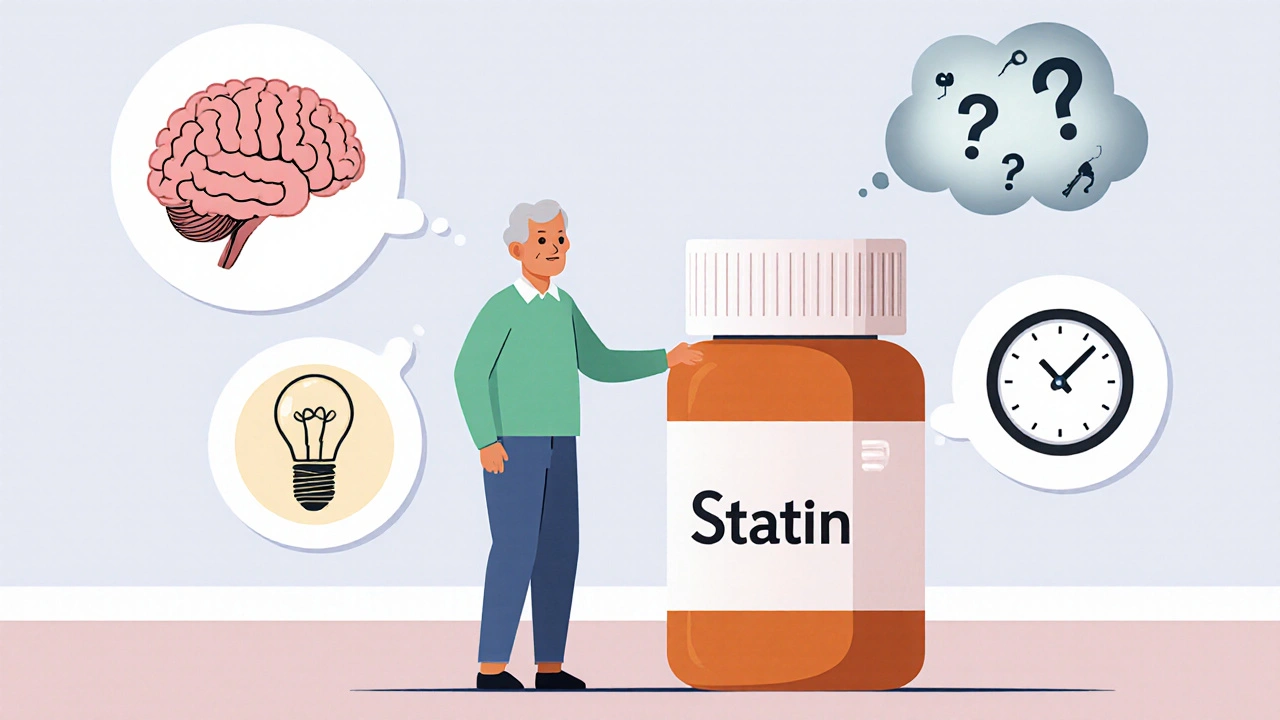Statins and Memory Loss: What You Need to Know About Cholesterol Drugs and Brain Effects
When you take a statin, a class of medications prescribed to lower LDL cholesterol and reduce heart attack risk. Also known as HMG-CoA reductase inhibitors, these drugs are among the most widely used in the world—millions rely on them daily to protect their hearts. But for some people, a strange side effect pops up: trouble remembering names, feeling foggy, or losing focus. It’s not rare, and it’s not just in your head. The FDA even added a warning about possible memory issues to statin labels back in 2012 after reviewing patient reports.
Not everyone on statins gets this. In fact, most people take them without any brain-related side effects. But for those who do, the symptoms are real—often described as a dull mental cloud, like your thoughts are moving through syrup. These effects usually show up within weeks or months of starting the drug, and they often go away after stopping the statin. Some studies suggest cognitive side effects, temporary memory lapses or confusion linked to statin use are more common in older adults, especially women over 65. It’s not full-blown dementia, and it doesn’t cause permanent damage. But it’s enough to make people question whether the heart benefit is worth the mental cost.
Here’s the twist: statins don’t cause memory loss by killing brain cells. They lower cholesterol, which your brain actually needs to function. Cholesterol helps build cell membranes and make neurotransmitters. When levels drop too fast, especially in people with already low cholesterol, it can mess with how nerve signals travel. That’s likely why some users feel off. And it’s not the same for every statin. Rosuvastatin and atorvastatin are stronger and more likely to cross into the brain, while pravastatin and fluvastatin are less likely to cause these issues. If you’re worried, talk to your doctor about switching—there’s a good chance you can keep your heart safe without the brain fog.
You’re not alone if you’ve noticed this. Many people hesitate to mention it, thinking it’s just aging or stress. But if you’ve started a statin and suddenly can’t find your keys or forget why you walked into a room, it’s worth tracking. Write down when it happens, how often, and what you were doing. Bring that to your doctor. They can check your cholesterol levels, rule out other causes like thyroid issues or vitamin B12 deficiency, and help you decide if adjusting your medication makes sense.
Below, you’ll find real, no-fluff posts from people who’ve been there—some who lost memory and got it back, others who switched statins and felt like themselves again. You’ll also see what the latest research says about the link between cholesterol drugs and brain function, and how to tell if what you’re feeling is normal or a red flag. This isn’t fear-mongering. It’s about giving you the facts so you can make a smart, personal choice about your health.

Statins and Memory Loss: What You Really Need to Know About Cognitive Side Effects
- Nov, 25 2025
- Daniel Remedios
- 11 Comments
Statins can cause temporary memory issues in some people, but these effects are rare, reversible, and often outweighed by long-term brain protection. Learn how to tell if it's the drug or something else-and what to do next.
